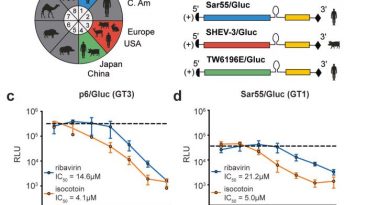Cattle farmers’ perception of biosecurity measures and the main predictors of behaviour change: The first European-wide pilot study
Transboundary and Emerging Diseases
Abstract
The importance of biosecurity as a strategy to prevent and control infectious diseases has increased substantially over the last few decades. Several studies have reported a low implementation level of biosecurity measures (BSM), particularly in cattle farms. In addition, a recent study demonstrated that cattle farmers are well aware of the recommended BSM and recognize them as more effective (in terms of time and costs) than treatment for disease. Therefore, other factors must be considered when it comes to understanding the decision‐making process followed by a farmer regarding the adoption of BSM. This study analysed the possible influence of five mental constructs described in the health belief model (HBM) on the adoption of BSM and assessed the possible association of these constructs with different demographic and socio‐psychological factors. Through an online survey, 988 questionnaires were completed by cattle farmers originating from Belgium, France, Germany, Spain and the Netherlands. The study revealed that the actual implementation of the BSM seems to be significantly influenced by the farmers’ perception of the measures’ benefits and the perception of health responsibility. Both constructs are influenced by the farmers’ personality in terms of risk aversion and biosecurity knowledge. It was also found that organic farmers had a significantly lower perception of the BSM benefits and of their responsibility towards animal, public and environmental health when compared with other types of farmer. Organic farmers in this study seemed less likely to implement biosecurity measures. To increase the adoption of BSM by cattle farmers, it is therefore important to emphasise the actual evidence‐based benefits of the measures and to investigate further how to strengthen cattle farmers’ sense of responsibility towards animal, public and environmental health.




